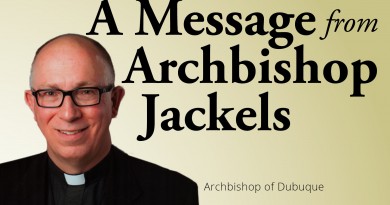Commutation brings new attention to the need for immigration reform
The week before Christmas 2017, President Trump commuted the prison sentence of Mr. Sholom Rubashkin, who had been CEO of a meatpacking plant in Postville, Iowa.
In May 2008, ICE raided that plant, resulting in the arrest and deportation of hundreds of undocumented immigrants who were employed there.
The loss of employees contributed to the bankruptcy of the meatpacking plant, which in turn focused attention on the company’s financial dealings. A financial review uncovered illegal transactions on the part of Mr. Rubashkin, for which, in 2009, he was convicted and sentenced to 27 years in prison.
Mr. Rubashkin was convicted for financial improprieties, not for employing illegal immigrants. Some say he should have also been tried for immigration charges, and others add for abusing and exploiting workers at the plant too.
This story brings new attention to the issue of immigration reform, as does the story of DREAMers and the still-pending outcome of the President’s action related to DACA.
The participation of Catholics in society, and their engagement with issues like immigration, is guided by principles of social justice developed from deep reflection on Sacred Scripture.
With regard to immigration, Catholic social teaching spells out that every sovereign nation has the right to control its borders, with the corresponding duty to develop a just immigration policy.
Especially well-to-do countries, like ours, has the duty to admit people who are looking to secure their rights to things needed to live in dignity: food and shelter, productive work and fair wages, education and health care, and protection from harm from the womb to the tomb.
We recognize that people have a right to immigrate to a new country when those things just listed are not available to them in their home country.
The bottom line is a respect for human life and dignity, as well as the readiness to provide for and protect people.
The responsibility to provide for and protect others is greatest when they are least able to do for themselves, for example: an immigrant, or a child in the womb. One’s responsibility may lessen as the other’s ability increases, but it never goes away.
Every January there are observances related to immigration, as well as the sad reminder of the Roe v. Wade decision legalizing abortion. These serve as reminders of our rights and duties, and as motivators to provide for them.
Many voices moved the President to commute the sentence of Mr. Rubashkin, claiming that the punishment was out of proportion to the crime.
Maybe our many voices – the stubborn, persistent, righteous innumerable voices of those who act justly and love mercy – will prevail upon Congress and the President to reform our present immigration policy, which requires a lengthy wait that is out of proportion to the poverty and violence that drives people to immigrate here.



